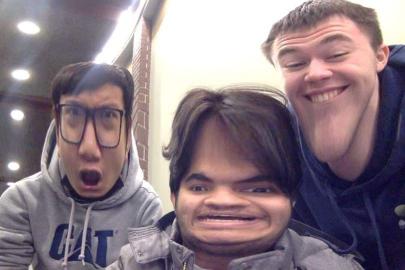Unit 4- Morality(Tim edition)
1/21
Earn XP
Name | Mastery | Learn | Test | Matching | Spaced | Call with Kai |
|---|
No analytics yet
Send a link to your students to track their progress
22 Terms

What is Utilitarianism?
Utilitarianism is the moral theory that focuses on the results and consequences of our actions while ignoring our intentions.
It is a form of consequentialism, where you judge if an action is good or bad depending upon its consequences instead of intentions. (bad people doing good things makes them good)


What is Utility?
Utility is how Utilitarianism is measured:
Instead of our definition of Utility as “general usefulness”, Mill’s defines it as “The ability to maximize happiness.” It is the opposite of selfishness.
The greatest moral action is to increase happiness for the majority, therefore your own happiness does not matter when you are committing moral actions.
While intentions are irrelevant, we need education so that people will have good motives to do moral actions.


What is the Greatest Happiness Principle? What problem does it face?
It is the principle that states an action is only good and moral if it maximizes happiness for the maximum number of people.
Inversely, bad actions are that which lower happiness for people.
The issue with Utilitarianism is Tyranny of the Authority: for example, killing all Jews would make the Nazis very happy.
Therefore the best society is one which maximizes happiness in the long-term instead of short-term, and protecting rights of liberty leads to Greater Happiness in the long run.


Hold on chat, then what is Happiness?
Happiness means something different from Aristotle’s Eudaimonia. instead of character development or virtue, it is about fortune, fun, fame, and the maximization of pleasure while minimizing pain!


What is Hedonic Calculus?
Since hedonism is just another word for “pleasure”, hedonic calculus is the thought process to determine which action is the most pleasurable.
“40 minutes of Ror2 is equal to edging for 3 hours.”
But the argument becomes artificial when you try to quantify pleasure, as you can just say “then just play Ror2 twice”.


What is Quantitative vs Qualitative Utilitarianism?
Qualitative deals with Qualitative pleasure: the difference between mental pleasures which were seen as sophisticated, and physical pleasures which were seen as crude.
Quantitative pleasure means all pleasure is of the same type.
Because pleasure is a crude foundation for morality, Mill establishes a hierarchy of pleasure: a spectrum from low to high pleasures whose only form of consensus is gained through asking individuals with experience.


How does morality extend to Animals?
While animals can not feel the same pleasures that we do, they do have the same capacity for pain. And in that regard, they have the same moral judgements as we do.
The more morally valuable life is that which has a higher degree of pleasure and pain.
So a cow is more valuable than an ant, or Chimp > Shrimp.


What is Kant’s Deontology?
“Deon” is derived from the Greek word for “duty”, it is a rules-based approach to morality, meaning Deontology is a rules-based philosophical theory.
Kant says that Good Will is tied to duty, so therefore good acts are good if performed solely for the sake of duty and nothing else.
Even if you do something to make other people happier, that is NOT MORAL because you aren't following moral laws for their own sake.


How does Kant’s Pure Reason Mog Utilitarianism?
Pure Reason is where we get our moral principles from in the first place, and is where we get the value of our principles. Kant thinks that, in Contrast to Utilitarianism, consequences of actions have no bearing on their moral value.
Reasoning based on Consequences(🙄) is entirely context-dependent, and therefore cannot even be used universally.
Kant only cares about finding a moral philosophy that is fixed, and applies to all situations and circumstances.


What is Heteronomy vs Autonomy?
Heteronomy is a person’s will based on inclination; their will is unfree and is not acting according to respect for universal moral laws. (chud)
likewise, Autonomy of the will is when out of duty or respect for the moral laws. (chad)


What is the Categorical Imperative? What are it’s two interpretations?
Remember, Kant is searching for Universal moral laws, which apply to all particular contexts and scenarios. His moral principle transcends time and space and applies to all logical beings:
UNIVERSAL LAW: When you are about to act, consider your action and universalize it. Imagine that everybody could and will do that thing; will that be a moral world to live in? (ex: if you lie, then everyone will lie as a fact of nature.)
FORMULA OF HUMANITY/KINGDOM OF ENDS: Respect the innate dignity of humans as ends-in-themselves. We ought to never use other people as a mere means for our inclinations/agendas/goals, and recognize each and every individual as a universally legislating being.


What is Kant’s Teleology? (Telos)
To be Good and to be Happy are not one in the same.
Kant believes Aristotle to be wrong about happiness being the goal of Human life, for if that were true then we would be instinctively happy.
The things which distinguish a human being does not lead to happiness, and the idea of a free will to decide our own actions seems to counteract this.
Instead, our purpose is to produce a holy good will; a will that is good in of itself.


What was God’s role when he was alive? What should we do now that he died?
God was the source of value and is seen as the law-giver, he made the commandments, and was seen as the foundation for truth, justice, and morality; The source from which all values emanate.
The entire western culture was developed in relation to God, and now in his absence we need to rebuild society because morality is now merely a social construct.


What opportunities does God’s death present? (Rip God 0-2024)
While the death of God was troubling for both Atheists and Theists, worried about angst and anarchy in society, Nietzsche saw this as a chance for the strong-willed individuals instead of a nihilistic disaster.
It is an opportunistic moment for those who do not abide by herd mentality, now free to create their own rules instead of inheriting their rules from the Bible. They are free to affirm themselves. The death of God means the death of objective and universal truth.


What does Nietzsche define as Good?
“Good” is the Will to power, and Good actions are whatever heightens that feeling of power, and Bad actions are that which lead to weakness.
He replaces the categories of good and evil with a contest between weak and strong wills.
Everyone has a concealed will to power, from religions, to socialists, to even the weak who use slave morality.


What is Slave-morality and Herd mentality?
“Slave morality” refers to the morals of people who are weak and lack the Life-Affirming psychology and physiology that the Will to Power is based on.
Slaves and weak people use “herd mentality” and band together because they are too weak to stand on their own.
Herd mentality is an internalized authority where you inherit the customs of your society instead of defining your own. Binding one’s conscience to their community gives them a sense of belonging, and gives comfort to the weak.


What is Master morality?
The Strong are not evil because of their strength, for it is their nature to be strong.
Master moralities are laws you give yourself, for the strong have the right to create their own values as individuals. Master moralities are concerned with self-preservation and self-affirmation, not with benevolence, fairness, equality, or justice.
To better suit the strong, the life-denying values of Western society must be re-evaluated.


What is the Transvaluation?
Nietzsche wishes for the re-evaluation of all values(political, scientific standards, religious, etc). Once we are freed from the weight of all our past ideals, the Strong will be able to re-assert their Will to Power more easily.
God is dead, and we must take on his role as lawgiver and being godlike by creating our own values & moral laws.


What does Nietzsche say about the future of Philosophy?
Modern philosophy has a blind prejudice towards finding “Truth and The Good”.
Every philosopher believes they are radicalizing their own school of thought, and Nietzsche is no different: future philosophers will take his words and question the Will to Truth, and revel in contradiction as a sign of the independence.
In a godless world, the solution to nihilism and hopelessness is to find value in life for yourself.


How is the “Opposition of Values” superficial?
The Will to Truth is supported by the Opposition of Values - the idea of opposing things like beautiful vs ugly, good vs bad, and truth vs falsehood. Western civilization uses this idea to create Hollow idols, relating these opposing ideas closely with their opposite.
What is evil or ugly or false may contain life-affirming impulses.
What is good, true, or honorable may be infected with evil.


How does Nietzsche critique Stoicism?
Stoicism is weakness, and therefore is morally bad: The Stoic life is based around life-denying aspects like ‘Ataraxia’, for what could be more slavish than denying your own emotions as part of yourself??
The stoics emphasized self-control over passion, but Nietzsche thinks that passion should be unleashed and made one with emotions.
Ataraxia is just their own weak-willed nature projected onto the world.


How does Nietzsche critique Free Will?
Is it “I” who possesses my thoughts, or do my thoughts possess me?
Nietzsche criticizes the subject of the proof “Cogito Ergo sum”, saying that it is our thoughts and beliefs that determine who we are, and not the “I” who commands these thoughts and beliefs.
A man who wills gives orders to something in himself which obeys. The “I” is said to be in command of your thinking and feeling, and yet is also what you are commanding.
Furthermore, We cannot see what motivates ourselves and others. Humans are not only deceptive, but often self-deceptive. We lie to ourselves most of all.
